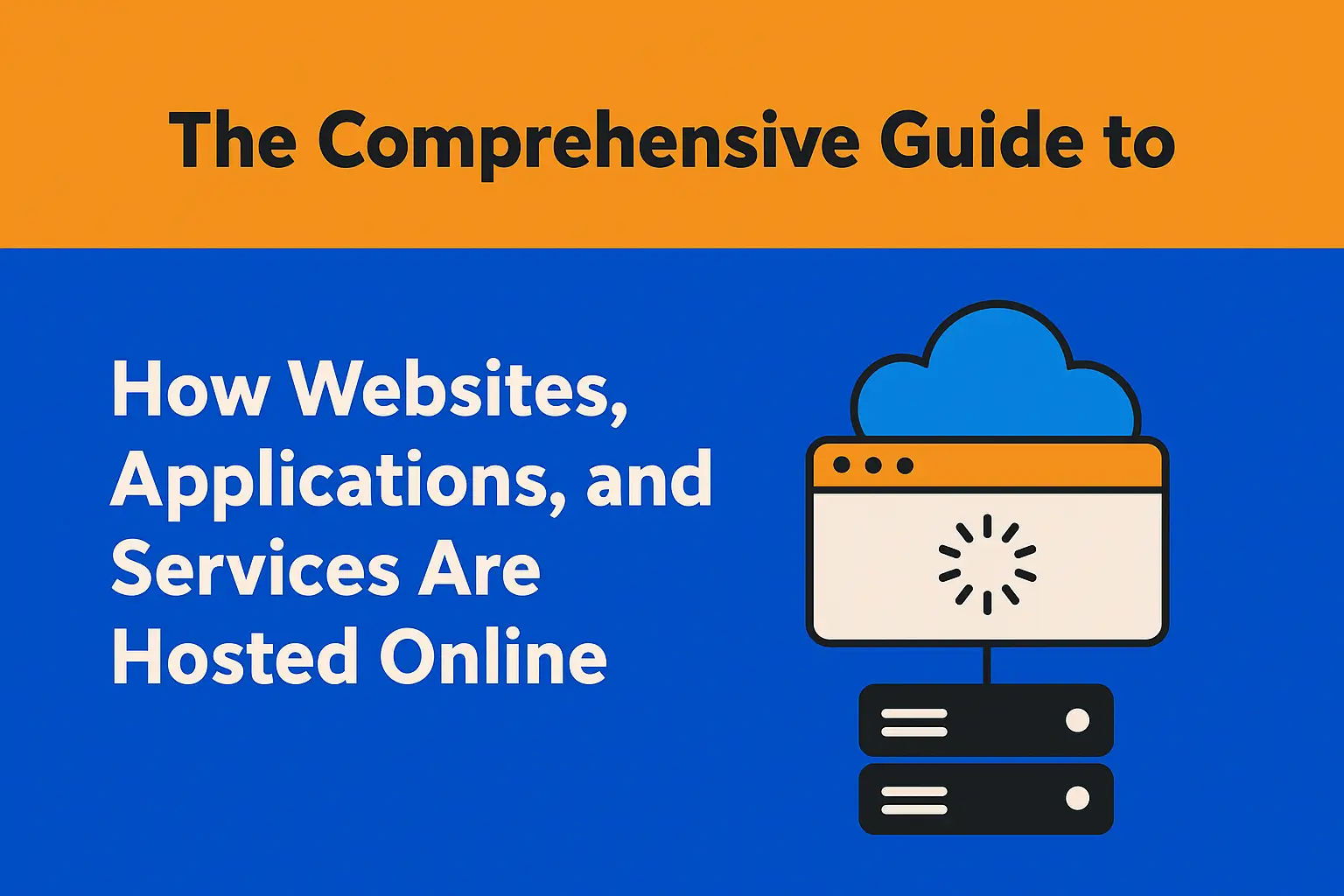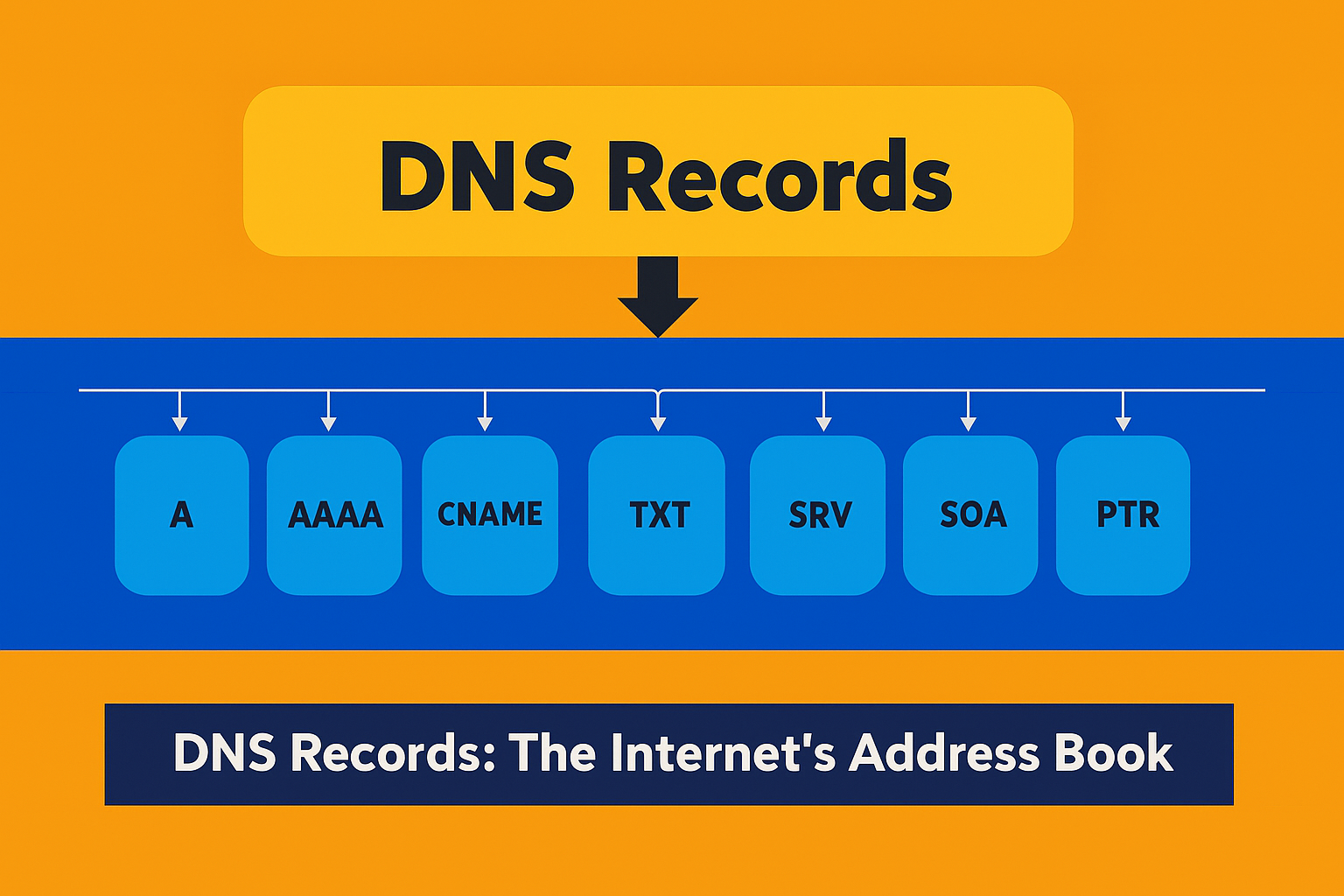
Introduction to VPS Hosting and Cloud Hosting
In today’s digital landscape, selecting the right hosting service is crucial for the success of your business. Two prevalent types of hosting are Virtual Private Server (VPS) hosting and Cloud hosting. Each has unique attributes that cater to different business needs, making it essential to understand their core functionalities and use cases.
VPS hosting is a type of web hosting where a physical server is partitioned into multiple smaller virtual servers, each acting independently. Businesses that require enhanced performance and control, without the high costs of a dedicated server, often opt for VPS hosting. Each Virtual Private Server runs its own operating system and behaves like a dedicated server, allowing for customization and scalability. Typical use cases for VPS hosting include hosting high-traffic websites, running custom applications, or managing resource-intensive tasks that shared hosting cannot reliably support.
Conversely, Cloud hosting utilizes a network of servers pooled together to provide scalable and flexible hosting solutions. Rather than being restricted to a single server, cloud hosting taps into a broader network of interconnected servers. This architecture allows for more robust scalability and reliability, as resources can be allocated dynamically across the network. Businesses that experience variable traffic patterns or require elasticity in their resource consumption frequently find Cloud hosting advantageous. Use cases for Cloud hosting comprise e-commerce platforms, enterprise applications, and startups requiring room to grow without looming infrastructure constraints.
The fundamental difference between VPS hosting and Cloud hosting lies in their architecture. While VPS offers partitioned, isolated resources on a single physical server, Cloud hosting distributes resources across multiple physical servers. This key distinction impacts performance, scalability, and availability, setting the stage for deeper comparisons and more tailored decision-making based on specific business needs.
How VPS Hosting Works
VPS (Virtual Private Server) hosting operates through the use of virtualization technology to create a distinct layer between the hardware and its users. Essentially, a powerful physical server is partitioned into multiple independent virtual servers. Each virtual server has its own dedicated resources such as CPU, RAM, and storage, which are allocated to ensure optimal performance and reliability for each user.
The virtualization software, often referred to as a hypervisor, is instrumental in this process. It dynamically manages the hardware resources, ensuring each VPS is sealed off in its own environment. This isolation provides enhanced security and stability compared to shared hosting, making VPS hosting a robust solution for businesses with moderate to high resource demands.
One of the key benefits of VPS hosting is the level of control it provides. Users have root access to their virtual servers, granting them the ability to install custom software, configure applications, and manage server settings to suit their needs. This level of customization is particularly advantageous for businesses requiring specific software environments or those with unique security needs.
Another significant advantage is the allocation of dedicated resources. Unlike shared hosting, where resources are pooled and can be unequally distributed among websites, VPS hosting ensures that each user receives a guaranteed amount of CPU, RAM, and storage. This leads to improved site performance and reliability, making it a suitable option for businesses looking to maintain consistent uptime and quick page load times.
However, VPS hosting does come with certain limitations. Scalability can be an issue, as the physical server has finite resources that can only be divided among a limited number of VPS instances. If a business experiences rapid growth, it may outgrow the capacity of its VPS, necessitating a move to a more scalable solution. Additionally, VPS hosting tends to be more costly than shared hosting due to the dedicated resources and control it offers.
Despite these constraints, VPS hosting remains a popular choice for businesses seeking a balanced combination of performance, security, and control, without the complexity and expense of dedicated server solutions.
How Cloud Hosting Works
Cloud hosting operates on the principle of distributing data across a network of multiple physical servers, forming a virtualized environment. Unlike traditional hosting models that rely on a single server, cloud infrastructure utilizes a network of interconnected servers, often spread across various geographic locations. This configuration is commonly referred to as a cloud cluster. Within this cluster, resources such as storage, processing power, and memory are pooled together, creating a highly flexible and scalable environment.
One of the key advantages of cloud hosting is its scalability. Since resources are drawn from a collective pool, businesses can easily upscale or downscale their requirements based on real-time demands. This elastic nature ensures that companies can handle varying levels of traffic without experiencing downtime. For instance, during peak usage times, additional resources can be allocated automatically to handle the surge, providing better uptime and performance.
Furthermore, cloud hosting offers exceptional flexibility. With a virtualized infrastructure, businesses are not limited to a single server’s capacity. They can deploy applications and services across multiple servers, ensuring high availability and redundancy. This setup reduces the risk of server failure and contributes to improved overall system reliability.
Despite its many advantages, cloud hosting does come with potential drawbacks. One issue is the complexity involved in managing and configuring a distributed network of servers. Businesses often require specialized skills or managed services to effectively utilize cloud infrastructure. Additionally, the costs associated with cloud hosting can be variable. While it can be cost-effective for businesses with fluctuating demands, consistent usage of high resources could lead to higher expenses.
In sum, cloud hosting stands out for its flexibility, scalability, and high uptime. However, organizations should weigh these benefits against the complexity and potential cost variability to determine if it aligns with their business needs.
Performance Comparison
The performance of a hosting solution is a critical factor for businesses seeking to optimize their online presence. VPS (Virtual Private Server) hosting and Cloud hosting offer distinct performance characteristics, each suited to particular needs and scenarios.
Starting with speed, VPS hosting provides dedicated resources such as CPU, RAM, and storage, which can result in excellent performance. Since these resources are allocated exclusively to a single client, VPS hosting can deliver steady and predictable speeds. However, the performance can be impacted by the capacity of the physical server and the efficiency of the virtualization software used. A real-world example includes e-commerce websites where consistent speed is crucial to user experience and sales conversions.
Cloud hosting, on the other hand, grants access to a pool of resources spread across multiple servers. This architecture allows for dynamic scaling, providing the capability to handle traffic spikes more effectively than traditional VPS hosting. The distributed nature of cloud hosting typically results in better speed consistency, especially if your business operates in varied geographical locations. High-traffic websites that experience fluctuating demand may benefit significantly from cloud hosting, as resources can be adjusted in real-time to ensure optimal performance.
Reliability is another key factor where differences between VPS hosting and Cloud hosting become evident. VPS hosting, while reliable, is limited by the reliability of a single physical server. If that server encounters issues or hardware failures, downtime can occur. Conversely, Cloud hosting offers enhanced reliability through its structure, as data and applications are hosted on virtual servers that span multiple physical devices. This redundancy ensures that even if one server fails, others can take over seamlessly, minimizing downtime. An example here is media streaming services, where continuous uptime is paramount to user satisfaction.
As a decision-maker, understanding the nuances in speed, reliability, and downtime between VPS hosting and Cloud hosting can help in selecting the best service that meets your business requirements. While VPS hosting might be the choice for relatively stable workloads requiring dedicated resources, Cloud hosting often excels in dynamic environments needing high reliability and scalability.
Scalability and Flexibility
In the arena of web hosting, scalability and flexibility are paramount considerations for businesses anticipating growth and evolving needs. When examining VPS hosting, scalability is typically more rigid compared to cloud hosting. While a Virtual Private Server (VPS) allows incremental adjustments, such as upgrading RAM or CPU, these upgrades often require manual intervention and might incur downtime. For instance, businesses might need to schedule off-peak hours to implement hardware upgrades, thus temporarily impacting website performance. Despite these limitations, VPS hosting caters well to medium-sized enterprises with predictable growth patterns, ensuring a controlled environment for resource management.
In contrast, cloud hosting offers superior scalability and flexibility, thereby making it a more adaptive solution for dynamic business environments. Cloud hosting leverages a network of interconnected servers, enabling resources to be scaled up or down seamlessly and at virtually any moment. This elasticity is largely automated, reducing the need for manual configurations and minimizing downtime. For example, e-commerce platforms that experience seasonal spikes in traffic can effortlessly scale their resources to handle increased demand, ensuring optimal performance. According to a study by Gartner, businesses adopting cloud hosting experience enhanced operational agility, capable of reducing IT operational costs by up to 30%.
Moreover, cloud hosting excels in flexibility when it comes to adding new features and applications. Businesses can integrate new functionalities through a variety of pre-configured templates and APIs, allowing for rapid deployment without significant changes to the core infrastructure. This capability is particularly advantageous for startups and tech companies that require a versatile and scalable hosting environment to support innovation and expansion.
Ultimately, the choice between VPS hosting and cloud hosting depends on the specific needs of the business. VPS hosting provides a stable and predictable environment suitable for consistent, gradual growth, while cloud hosting offers unparalleled scalability and flexibility, ideal for rapidly growing enterprises with fluctuating demands.
Security Considerations
When assessing security for VPS hosting and Cloud hosting, it is crucial to delve into the particulars of data protection, backup solutions, and server management. Both hosting types offer distinct security advantages and potential vulnerabilities that must be meticulously managed to secure business assets.
VPS (Virtual Private Server) hosting operates by partitioning a physical server into multiple virtual servers, each isolated from the others. This isolation provides a degree of security, as each VPS has its set of resources and can implement customized security measures. Data encryption is pivotal in securing communications and stored data within a VPS environment. Regular backup solutions are necessary to safeguard against data loss, and these can typically be scheduled to meet specific business needs. Server management in VPS hosting requires diligent attention, including regular software updates, patching vulnerabilities, and actively monitoring for any suspicious activity. Users need to rely heavily on their IT skills or employ managed VPS services to mitigate any security risks effectively.
Cloud hosting, on the other hand, distributes resources across a network of physical and virtual servers. This distribution enhances redundancy and uptime but poses unique security challenges. Data encryption, both at rest and in transit, is paramount in mitigating unauthorized access risks within cloud environments. Cloud service providers often offer robust backup solutions integrated into their services, ensuring data recovery in disasters or cyber-attacks. Server management in cloud hosting largely depends on the shared responsibility model. While the cloud provider secures the infrastructure, users must secure their applications, data, and user accesses. Advanced security measures, like multi-factor authentication (MFA), intrusion detection systems (IDS), and regular security audits, are recommended to fortify the cloud-hosted environment against potential breaches.
Both VPS and Cloud hosting have inherent vulnerabilities. In VPS environments, improper isolation can lead to risks if one tenant affects another’s performance or security. In cloud hosting, the multi-tenant architecture can expose data to shared risks if not properly managed. Employing sophisticated security protocols, continuous monitoring, and dedicated security resources is crucial for safeguarding both hosting types effectively. Businesses must evaluate their specific security needs and choose a hosting solution that offers the best balance of protection, performance, and scalability.
Cost Analysis
When examining the financial implications of VPS hosting versus cloud hosting, businesses will find distinct differences in pricing structures and associated costs. VPS hosting usually follows a static pricing model, where users pay a fixed monthly or annual fee for allocated resources, including CPU, RAM, and storage. This predictability can be advantageous for budgeting, as there are no unexpected charges. However, the static nature of VPS hosting means businesses might end up paying for unused resources during times of low demand.
Conversely, cloud hosting typically employs a pay-as-you-go pricing model. This flexible approach means businesses are charged based on actual resource usage. Cloud hosting services scale automatically, ensuring that companies only pay for what they consume. While this can result in cost savings during periods of low activity, it also means that costs can escalate quickly during peak times if not monitored and managed effectively.
Upfront costs for VPS hosting include set-up fees and potential investments in hardware if the service is managed on-premises. Ongoing expenses are generally limited to the monthly or yearly payments agreed upon in the hosting contract. On the other hand, cloud hosting generally has low to negligible initial costs, as it leverages the server infrastructure of the hosting provider. However, the ongoing expenses can vary significantly based on usage patterns and additional services such as data transfer, storage, and specialized security measures.
Hidden fees are another important factor to consider. With VPS hosting, these might include costs for additional IP addresses, software licenses, and overage charges for exceeding allotted resource limits. Cloud hosting may introduce hidden costs through fees for data egress, premium support, and advanced network features. Therefore, scrutinizing the fine print of any contract is imperative to avoid unexpected charges.
Examining typical expenses, a small business with moderate traffic might find VPS hosting more economical, with costs ranging from $20 to $50 per month. For medium-sized businesses, cloud hosting might be more suitable due to its scalability, though costs could vary from $100 to several thousand dollars monthly, based on resource consumption. Large enterprises often benefit the most from cloud hosting’s elastic nature, allowing them to handle high loads efficiently. However, such flexibility can lead to significant expenditure, potentially in the ballpark of tens of thousands of dollars monthly.
Ultimately, the decision between VPS hosting and cloud hosting will hinge on the specific financial priorities and resource needs of the business in question.
Conclusion: Making the Right Choice for Your Business
Deciding between VPS Hosting and Cloud Hosting necessitates a detailed understanding of each option’s strengths and how they align with your business needs. VPS Hosting offers dedicated resources and a consistent performance environment, making it an ideal choice for organizations that need stability and control at a predictable cost. On the other hand, Cloud Hosting provides unparalleled scalability and flexibility, allowing businesses to handle varying loads efficiently and pay only for the resources they use.
To guide your decision-making process, consider the following key questions:
1. What are your current and anticipated resource needs? If stability and dedicated resources are critical, VPS Hosting may be more suitable. If you anticipate significant fluctuating demands, Cloud Hosting’s scalability could be advantageous.
2. What is your budget? VPS Hosting typically offers fixed costs, making budgeting straightforward, while Cloud Hosting costs can vary based on usage.
3. How important is infrastructure control to you? VPS Hosting allows for a high degree of customization and control, whereas Cloud Hosting emphasizes managed services and ease of use.
4. Are there any specific compliance or security requirements? VPS Hosting can offer more control over security settings and compliance measures.
5. What level of technical expertise does your team possess? If you lack in-house expertise, managed Cloud Hosting services might be more appealing.
In making the right choice, it is crucial to evaluate these factors in the context of your specific business objectives and technical requirements. Both VPS and Cloud Hosting have their distinct advantages and cater to different operational scenarios. Taking the time to assess your needs carefully can ensure that the hosting solution you select supports your business growth and performance goals.
Lastly, if you are still uncertain about which hosting solution is best for your business, consider seeking professional consultation. Hosting experts can provide tailored advice based on a thorough analysis of your business requirements, ensuring that you make an informed and strategic decision.





0 Comments